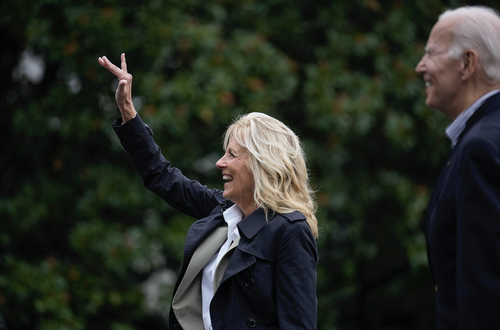Taibbi: Does The United States Have A Plan In Ukraine?
Authored by Matt Taibbi via TK News,
Fifteen years ago, in a July 2007 Democratic primary debate in Charleston, South Carolina, Senator Barack Obama won applause by saying sure, he’d meet with the leaders of countries like Iran, Cuba, and North Korea. “The notion that somehow not talking the country is punishment to them” was ridiculous, he said, adding even JFK and Reagan were willing to talk to the Soviets.
“They understood that we may not trust them, and they may pose an extraordinary danger,” Obama said.
“But we have the obligation to find areas where we can potentially move forward.”

Obama’s line won him new admirers and helped dent progressive support for frontrunner Hillary Clinton. The episode is now mostly forgotten, as Talking to Bad People has again been deemed forbidden, even by former liberals, perhaps especially by them, even with the country suddenly at greater risk of nuclear war than at any time since the Cuban Missile crisis.
These dynamics resurfaced in a confusing way this week. To no one’s surprise the Biden administration continued to say it won’t negotiate with Russia, but it suddenly also began leaking a belief that it doesn’t think fighting will work, either. If both strategies are off the table, what exactly are we doing?
Biden was also at that 2007 debate. When New Mexico’s Bill Richardson said he favored sending U.N. troops and showing “diplomatic leadership” in Darfur, the future veep could barely contain his disgust.
“I’m so tired of this. I heard the same arguments after I came back from meeting with Milosevic,” Biden seethed. “We can’t act. We can’t send troops there. Where we can, America must. Why Darfur? Because we can.” He added. “Those kids will be dead by the time diplomacy is over.”
Conventional wisdom says Obama picked Biden to “reassure older white voters,” as NPR put it, but Biden also had some swag and physicality, which helped offset the high intellectual dweeb quotient plaguing the party. Obama suffered from it himself, and was smart enough to know it. He later wrote approvingly of Biden’s “lack of a filter,” which came out when Joe barked insults and threat-like exclamations at effete word-choosers like Richardson or John Edwards. It was eccentric, but real, an area where Obama needed help. Biden was the closest thing to Gary Busey Democrats had and like Busey in Point Break, Joe played a great loose-cannon counterweight to the sensitive pretty face in the lead.
Years later, Biden is a shell of himself, but still a loose cannon. In a confusing series of episodes, Biden and his government seem to be changing their minds almost daily about negotiation. For instance, he raised eyebrows when he theorized about giving Vladimir Putin an “off-ramp.” When asked by CNN’s Jake Tapper if he’d consider meeting with Putin, he said, “it would depend.”
In the same interview, though, as if remembering his sheet of talking points — which at one point fell to the floor, leaving Tapper to lean over and hand them back — Biden fell back to what sounded like a party line. “I have no intention of meeting with him,” he said, before adding the administration bumper sticker, “Nothing about Ukraine without Ukraine.” Then, reverting to his familiar sternum-poking persona, he declared, “I’m not about to, nor is anyone else prepared to negotiate with Russia.”
The United States and Ukraine have effected a strange negotiations switcheroo since war started. In March, it was Volodymyr Zelensky who asked for diplomatic help, commenting, “there will be fighting, but it will only definitively end through diplomacy.” A question was whether or not Zelensky was empowered to negotiate an end to U.S.-imposed sanctions. Ryan Grim of The Intercept was the only reporter to push this question and did a great job pestering then-spokesperson Jen Psaki, but she non-answered who was empowered to do what, saying only Zelensky is “the leader of Ukraine and so he’s empowered to have a negotiation with Russia.”
Zelensky has urged the US to be more involved in negotiating an end to the war and I asked Psaki if he is empowered by the US to negotiate with Russia and have those negotiations result in US sanctions being lifted. Answer here: pic.twitter.com/iH11yEHrcZ
— Ryan Grim (@ryangrim) March 15, 2022
Perhaps emboldened by military success Zelensky soon after adopted the U.S.-style no-meeting-without-
Subscribers to TK News can read more here…
Tyler Durden
Fri, 10/14/2022 – 16:20
via ZeroHedge News https://ift.tt/rd3ON0V Tyler Durden